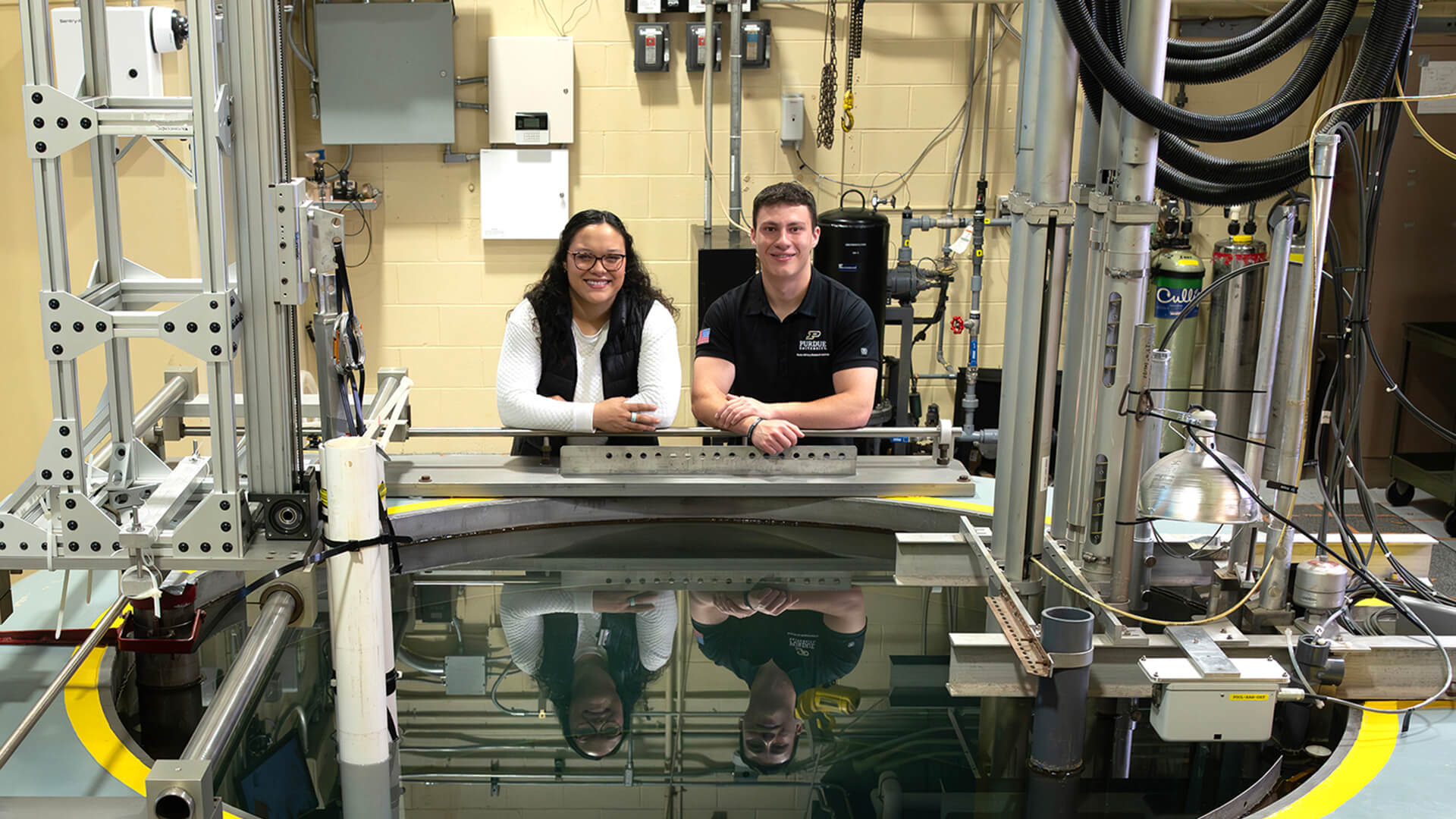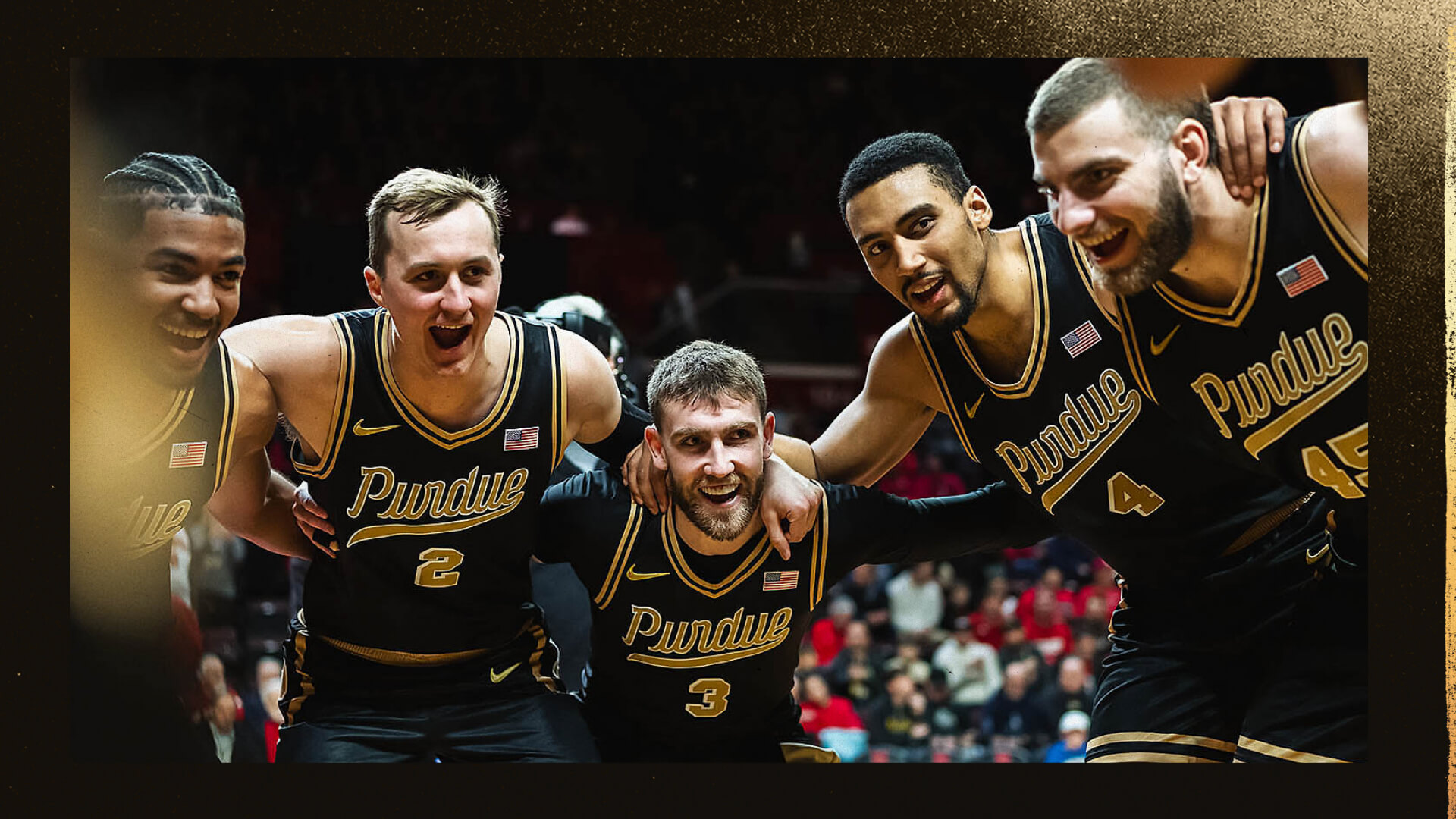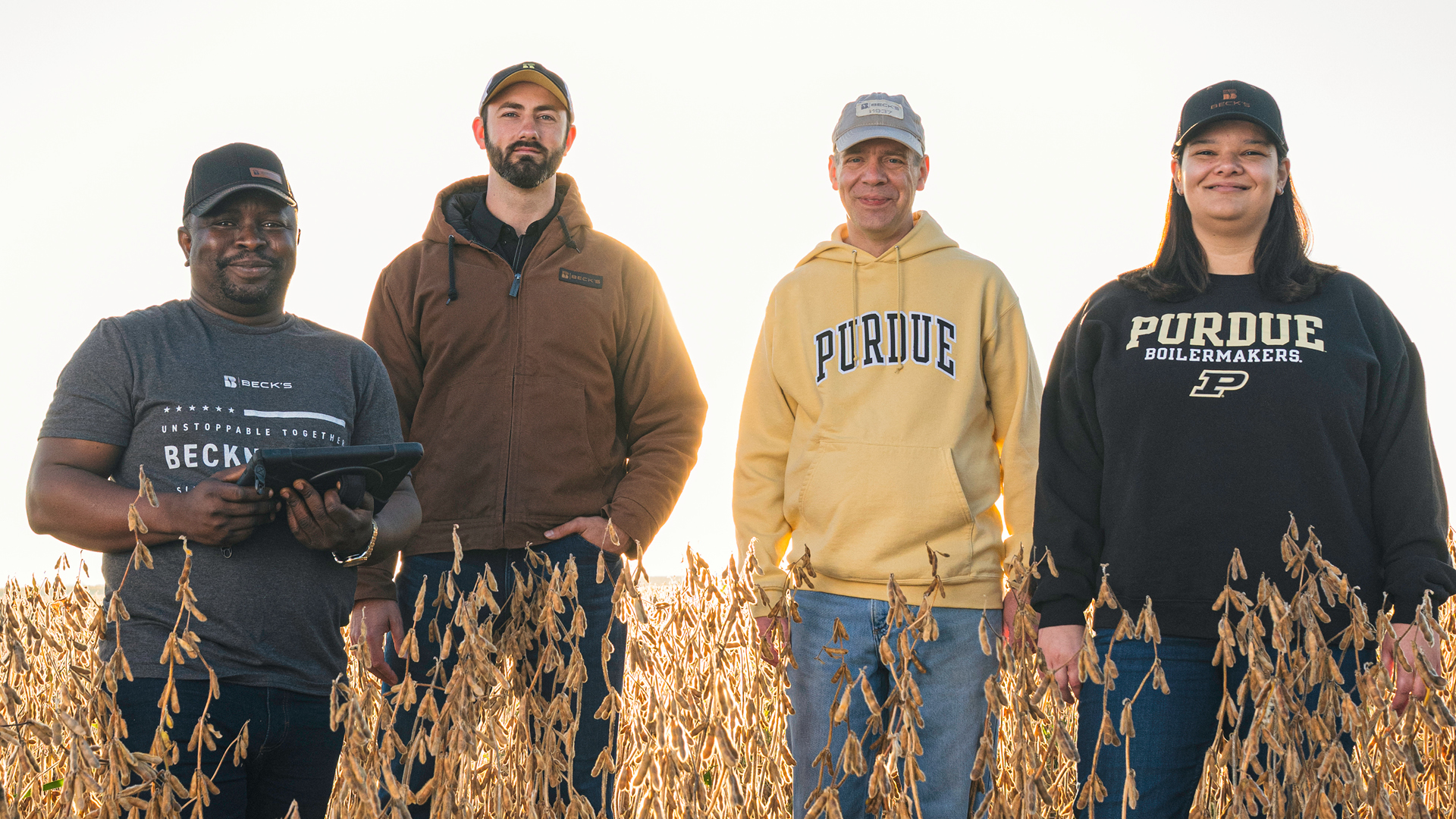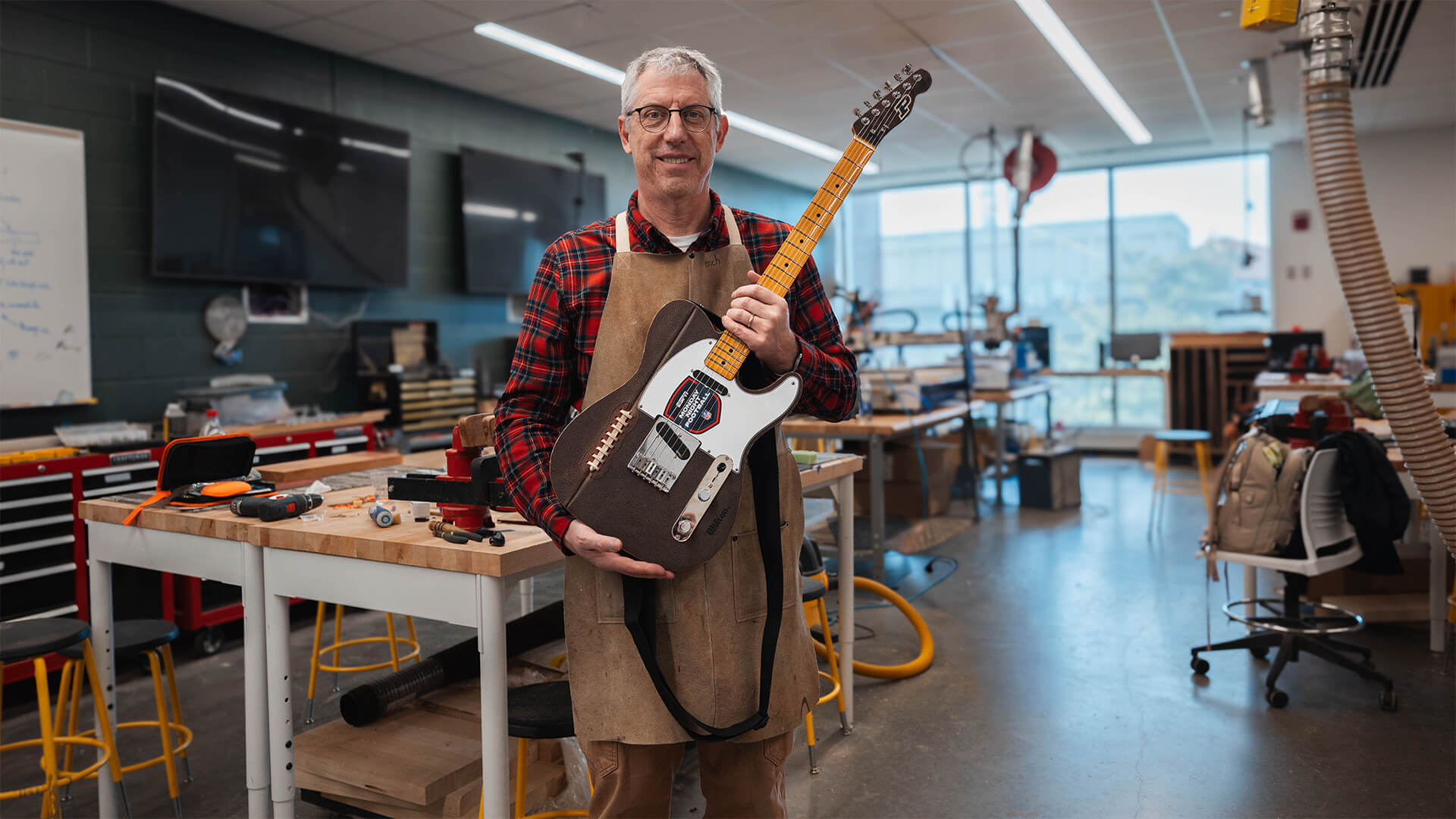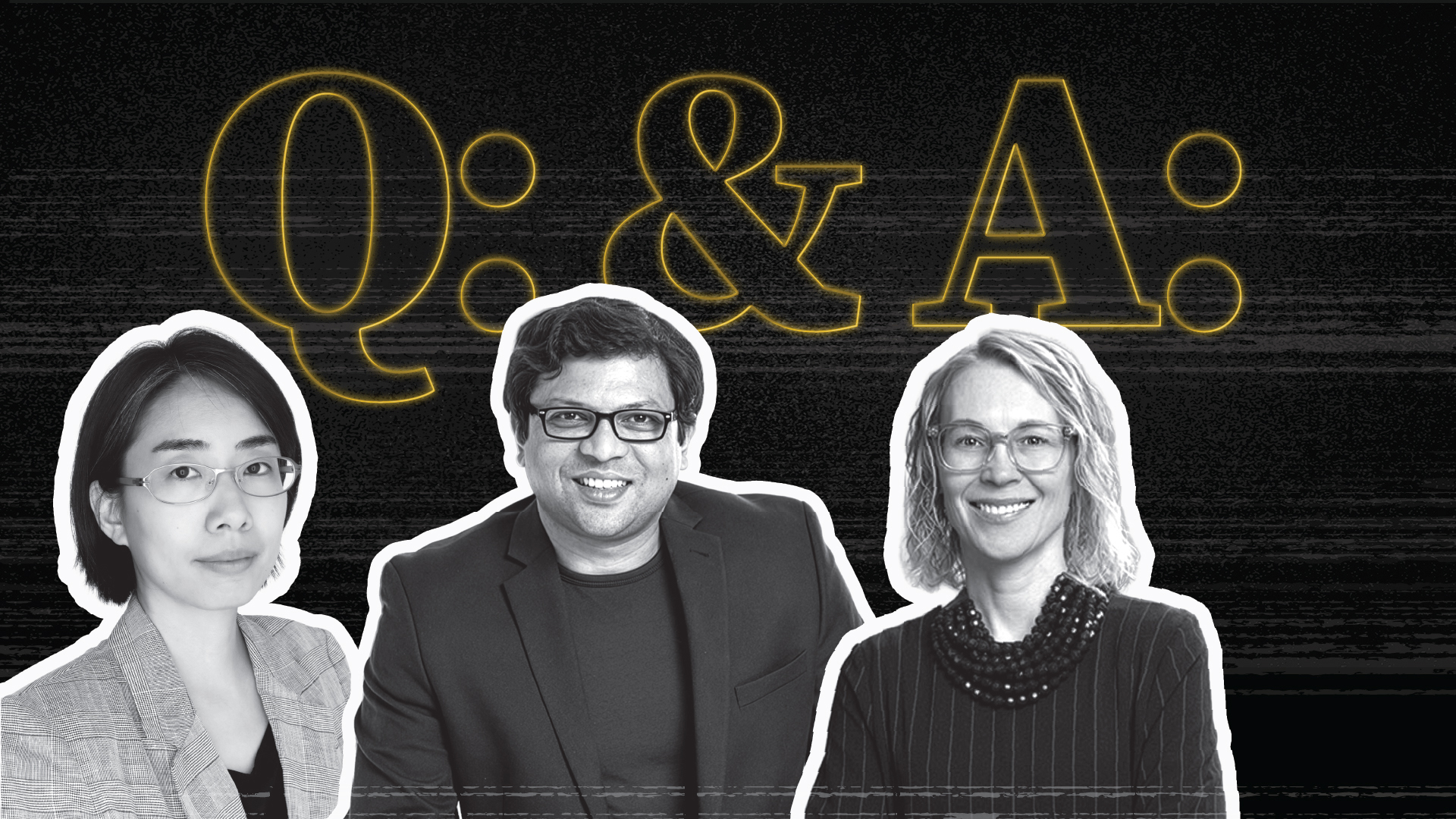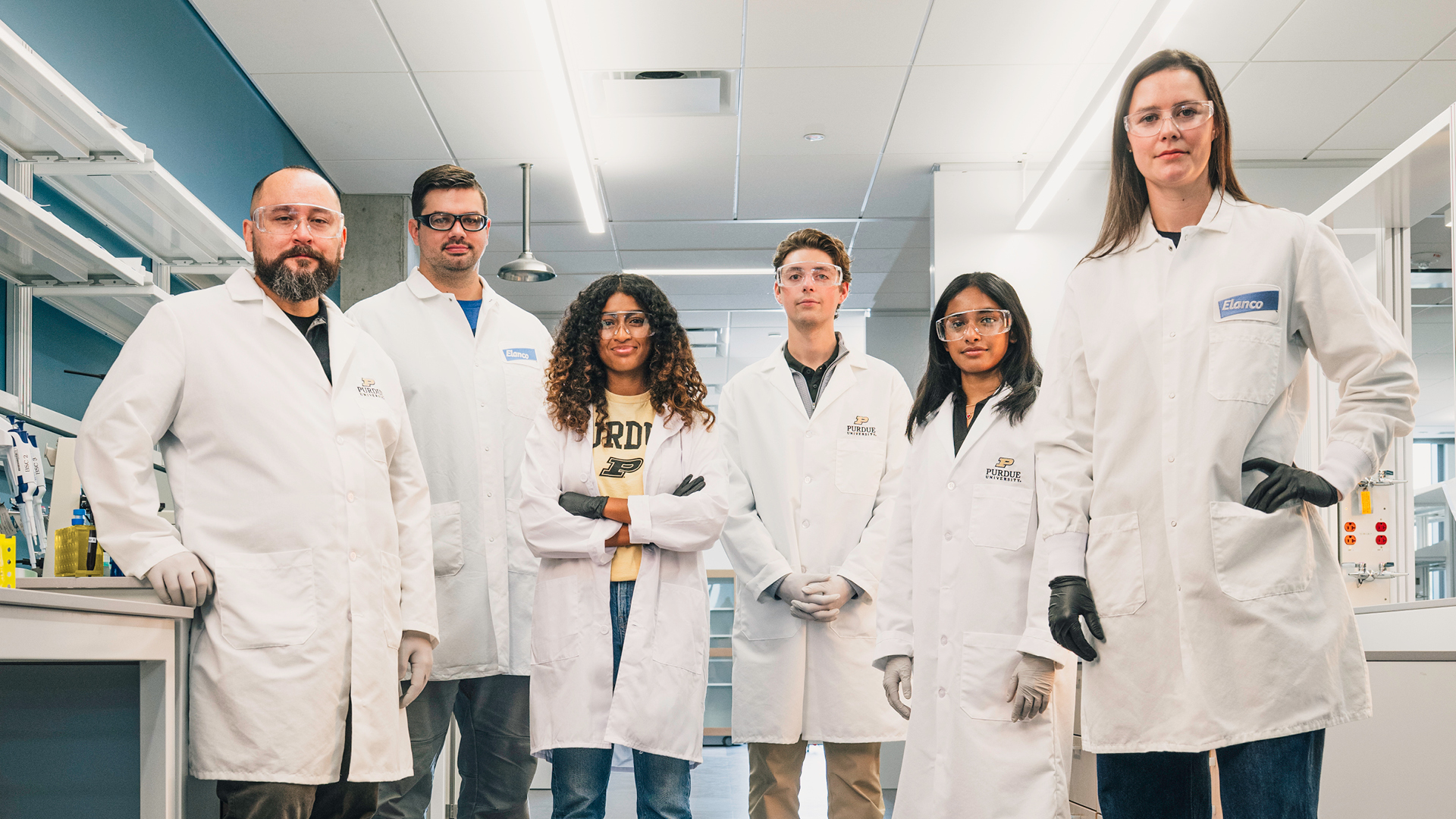Made for more: Purdue Global Law School grad saw a future after football
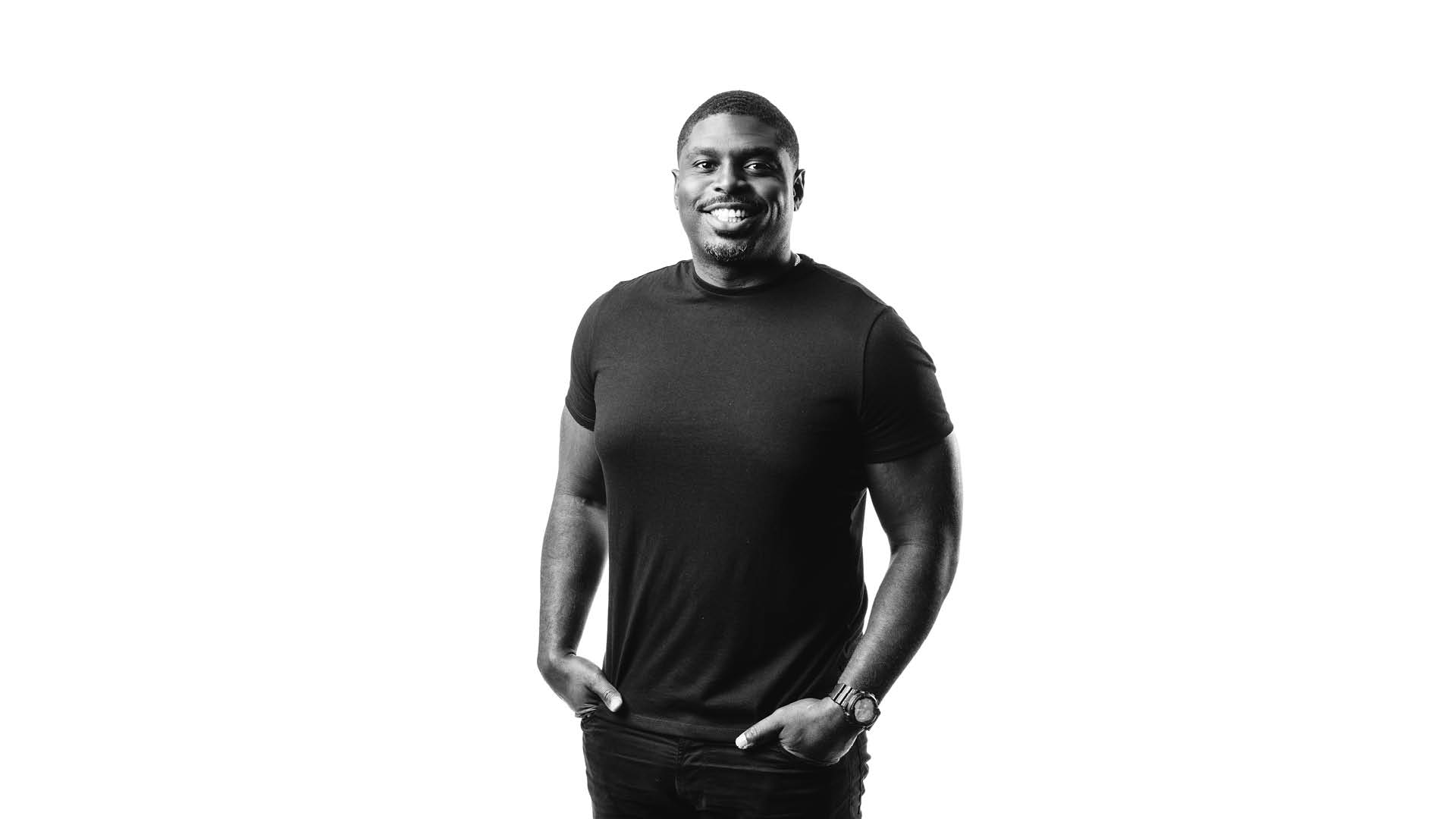
An entrepreneur at heart, Tony Jackson (Executive JD ’21, Purdue Global Law School) always knew that education was going to move his business forward. Now he’s sharing the story of how his online law degree with Purdue Global Law School changed everything. (Purdue University photo/Kelsey Lefever)
Tony Jackson earned his Executive Juris Doctor degree online, and it’s empowering his entrepreneurial journey
Millions of young men across the United States might say a professional football career is the ultimate dream. And after a successful college career at the University of Iowa, Tony Jackson (Executive Juris Doctor ’21, Purdue Global Law School) did earn himself a spot with the Seattle Seahawks in 2005 as a sixth-round draft pick.
But he always knew he was made for more.
In his life after pro football, he’s still adding achievements to the trophy case, and these post-athletic accomplishments mean even more to him. He’s created and run multiple successful companies, launched several passion projects and earned a law degree with Purdue Global Law School while running a business and starting a family.
Jackson was an entrepreneur before he decided to go back to school for an advanced degree, but he says his executive juris doctor exponentially evolved his business and his abilities as a professional — fast.
And yet, Jackson is remarkably humble about it all.
“If I had to brag, one thing I’m very good at is surrounding myself with people who are better and smarter than me, and I learn from them,” he says. “One of my favorite quotes is by Sir Isaac Newton: ‘If I’ve seen further, it’s because I’ve stood on the shoulders of giants.’”
The giants in Jackson’s life lifted him up so he could see the possibility of a future of his own making. In fact, Jackson’s story is less about football than it is about the men who taught him. Now he’s paying it forward.
The power of a chosen family
Their names were Sandy Sanders and Rufus Pipkins.
“It wasn’t exactly the mean streets of downtown Detroit, but socioeconomically, there were some challenges,” Jackson says of his hometown. “I didn’t know many men growing up — especially Black men — who had graduated from college.”
That’s why Sanders (one of his elementary school teachers and the father of two of his good friends) and Pipkins (his high school football coach) had such a tremendous impact on him. Sanders, who had a master’s degree in education, served as a father figure for many years.
When Jackson was in high school and starting to get some publicity as a football standout, Sanders was still checking on him. But he was less concerned with his athletic plans and stressed academic pursuits. Sanders regularly riddled him with questions. What was Jackson’s GPA? What classes was he taking? Was it the right load? Are they the right ones to prepare him for the academic rigor of college?
And Pipkins, who had an engineering degree, was there at one of the most crucial moments of Jackson’s life. He took Jackson into his home when he lost his mom during his senior year. And in addition to the support a teenager needs from a loving adult, living with Pipkins also gave Jackson an insider’s look into the life and career of an engineer.
Those men, Jackson says, shaped his outlook of academics over athletics — which ultimately ensured his success in both. After finishing his college football career strongly, he graduated from the University of Iowa with a BS in economics and a minor in business.
“My relationship with these two men gave me the confidence that not only was I going to attend college, I was going to succeed and graduate,” he says. “Many college athletes don’t make it past their freshman year because they aren’t prepared to be independent and academically successful. But I felt prepared.”
An off-the-field comeback
When he left the NFL, Jackson was often asked, “Don’t you miss playing?” While it felt like the answer should have been yes — it was an experience of a lifetime — he didn’t, at all. It made him realize it wasn’t really the sport itself that he loved. It was, perhaps, its parts.
“Football was my ticket to education. It allowed me to change my environment and create my own future. But I’m not sure how much I liked the game. It was the team aspect of it that was impactful to me,” he says.
He also was discovering that corporate life was definitely not for him. The atmosphere, after spending most of his adolescence profoundly united with his teammates, felt disconnected.
“Having a co-worker and having a teammate are completely different things,” he says. “I was used to having teammates who were like brothers. You’d do anything for each other.”
So Jackson and his wife, surgeon and dermatologist Dr. Mercy Odueyungbo, opened their own dermatology practice.
Jackson says that getting out of corporate life felt like the complete answer he’d been looking for. It was everything he loved about football, without being football.
“The thing I loved most about playing was the teamwork,” he says. “As an entrepreneur, you can set the vision. Everybody’s working together, and it makes the day fun. You’re competing. You keep a scoreboard; you have an objective. It’s not simply getting up and ‘making the doughnuts’ every day and not seeing or feeling passionate about what you’re working toward.”
But soon, he sensed they were at a crossroads.
“I started to feel a bit stagnant,” he says. “I wanted to do something bigger, something more. I wasn’t quite sure what that thing was, but I was certain it had to come about by additional education.”
But it wasn’t an MBA he went back for.
“I never intended to be a lawyer. But learning the law is learning the rule book of business,” he says. “The executive juris doctor I got from Purdue Global is what made me an executive.”
The executive juris doctor I got from Purdue Global is what made me an executive.
Tony Jackson
Executive Juris Doctor ’21, Purdue Global Law School
Moving toward a passion
With a degree in economics and business, Jackson was used to information being presented conceptually, and he didn’t feel like it had much practical application — at least not in any way that interested him.
But Purdue Global Law School was different.
“I started law school right when we were working to expand our company. We were going from a small, niche market — five or six people — to tripling in size,” he says. “I suddenly had HR duties; I had to know employment law; there were contracts being negotiated and signed. I was learning those things at Purdue Global at night, and then I’d actually do it during the day.”
Now, as an alumnus, life is different.
First, he’s a dad, which is the greatest joy of his life.
“As a person who grew up without a father, being a dad was always something I wanted to excel at. It’s almost like the competitive mentality I had with sports,” he says. “Being a dad is a badge of honor for me.”
Serving as a role model for his daughters is a lifelong dream come true, but he wants more role models, more inspirational humans, more visible giants for everyone’s kids. He knew he could have an impact in media by holding up one example after another.
“Typically, what we see is the entertainers — musicians, athletes, performers. They’ve ended up being the spokespeople for African Americans, but they don’t represent the true demographic. There are far more Black doctors than there are Black NBA players; there are more Black accountants, lawyers, engineers, writers and other professionals. That’s why we create content that shows African Americans in a different, more accurate light than what’s commonly portrayed.”
It was to fill this need that he founded Jackson Media Group, which operates several media properties he also owns. Its first project was a reality television series featuring his wife that aired on TLC. “Dr. Mercy” told the day-to-day stories of treating patients in their dermatology practice. Jackson says there was an immediate, positive outpouring.
“Seeing a Black, female doctor on TV impacted a lot of people. Little girls were dressing up as her for Halloween! It meant something, to kids especially, to see that it’s clear she’s a normal person. She’s not normal — she’s exceptional — but she’s showing little girls that you can be a Black woman and achieve what she has without having to be on a stage,” he says.
So he comes full circle, back to his childhood and the giants who offered their shoulders to stand on. And he thinks about the profound impact a single visible role model can have for Black children who might not otherwise see the possibilities.
“For our kids, our ceiling is their floor,” he says. “Wherever we stop off, that’s their beginning.”
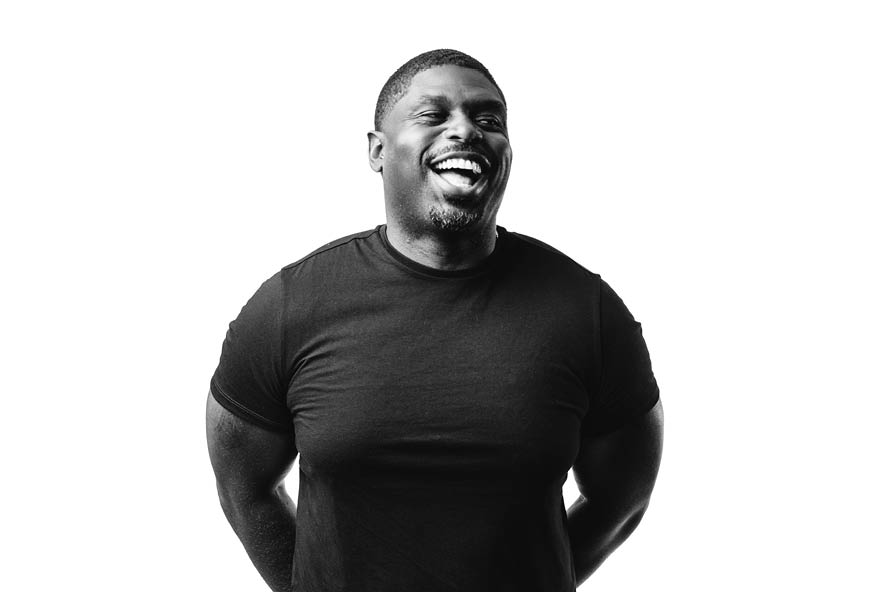
For our kids, our ceiling is their floor. Wherever we stop off, that’s their beginning.
Tony Jackson
Executive Juris Doctor ’21
Purdue Global Law School

